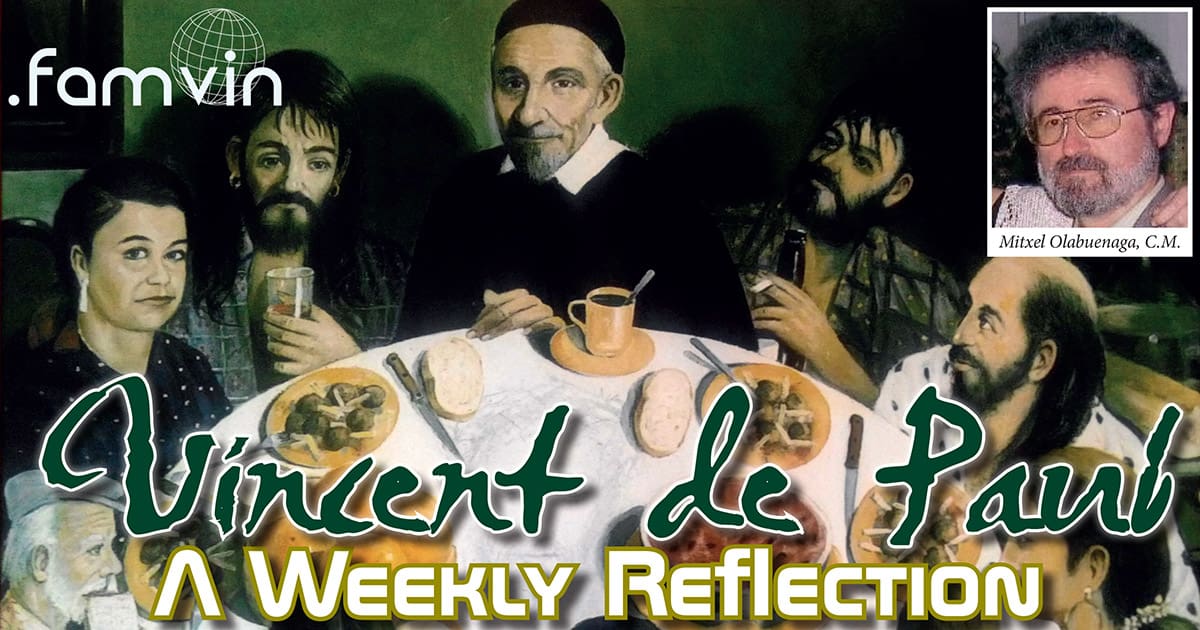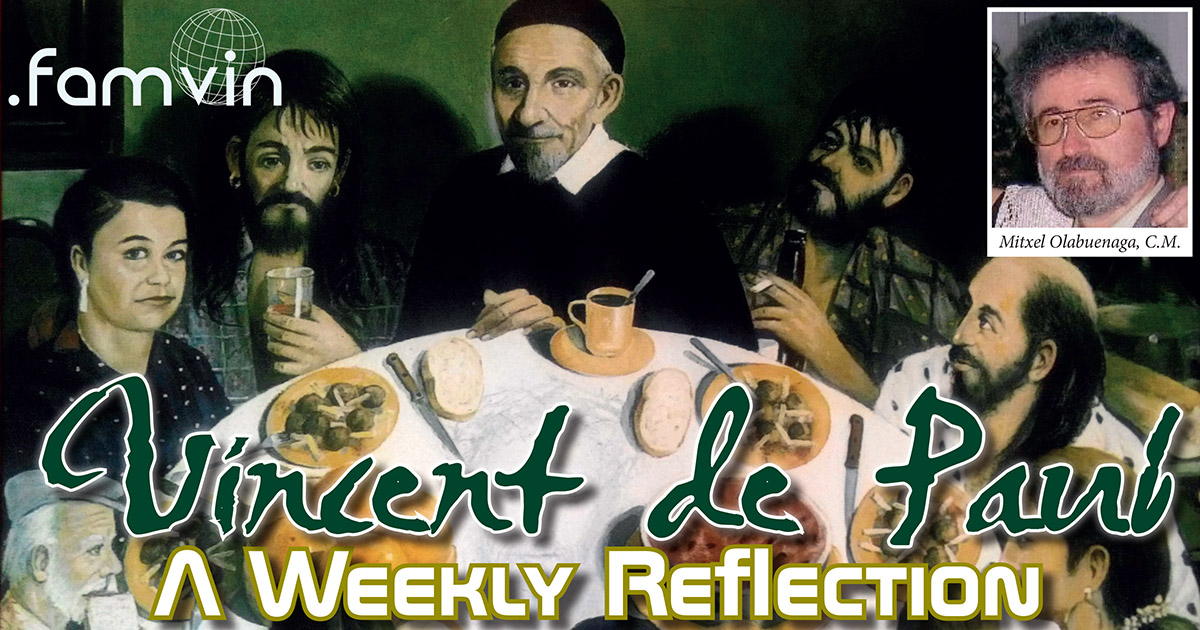Preaching with Simplicity • A Weekly Reflection with Vincent
“How did the Apostles preach? Very plainly, simply, and familiarly. That’s our style of preaching, too: plainly and familiarly in ordinary language. To preach like an Apostle, Messieurs, that is to preach well and in a helpful way, you have to approach it with simplicity, using familiar speech, so that each person will be able to understand and profit by it. That’s how the disciples and Apostles preached and how Jesus Christ preached; God has bestowed a great favor on this insignificant, wretched Company in giving us the happiness of imitating Him in that” (CCD XI, conference 134).
Vincent de Paul
Reflection:
- Mr. Vincent insisted again and again on the virtue of simplicity. It seems that the pedagogy applied by Mr. Vincent is to insist “in times opportune and inopportune” arguing in every circumstance in a different way.
- In this case he uses various reasons that deploys, from less to more importance, according to the degree of the mentioned authority: “That’s how the apostles preached; that’s how Jesus preached; it’s a joy to imitate, in this, God.” In other words: God has done us the great favor of letting us preach as he did Jesus and his apostels and disciples. What’s more, if we want the message to arrive at its intended hearers, we ought to act the same way.
- And how to do this? … He repeats it three times: plainness, familiarity and simplicity. Three terms that add various nuances to a plain discourse. Plainness refers to “clarity,” familiarity to “proximity” and simplicity to “unadorned.” When we read of the preaching in vogue at that time …. We understand better that Mr. Vincent wanted his missionaries to break with these forms.
- All this pedagogy has a purpose: that “each person will be able to understand and profit by it.” Perhaps we should point out, at this juncture, the “all:” that is, we must preach with simplicity because it is the most appropriate way, at all times and before any public. In addition, two issues are highlighted: “understand” and “profit by it.” I think they are two sides of the same coin, affecting the first to the theory and the second the practice. It is, therefore, not only that the truths explained are understood but that they are useful in life.
Questions for dialogue:
- What is our ordinary preaching like?
- What are the sources we normally use in preparation?
- Do we know how to combine “understanding” and “to profit”?
- Could we evaluate our preaching with these three indicators (plainness, familiarity and simplicity)?
- What would be our areas of improvement in this competence?
Mitxel Olabuenaga, C.M.
![]() Mitxel.OlabuenagaOrnes
Mitxel.OlabuenagaOrnes
Tags:








0 Comments